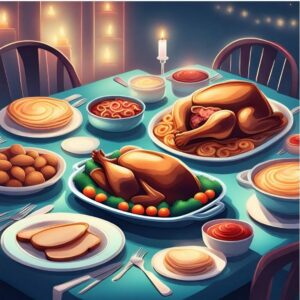
Growing up, January 1 New Year’s Day, was my favourite time of the holiday season. My family held a big, potluck get-together and all the leftovers from our Christmas dinners were transformed into once-a-year special casseroles, soups, and other traditional dishes. The aunts and uncles and cousins all arrived with their own special potluck offerings – also made from Christmas leftovers – and we’d all eat, drink and be merry.
While these New Year’s Day potlucks are a thing of the past, we’re all still careful about storing and enjoying our holiday meal leftovers.
Here are some suggestions to keep you and your loved ones noshing on holiday leftovers for months to come.
Even after it’s fully cooked, you want to take care of how you handle and store the turkey, ham, or roast. These points also apply to any plant-based entrees.